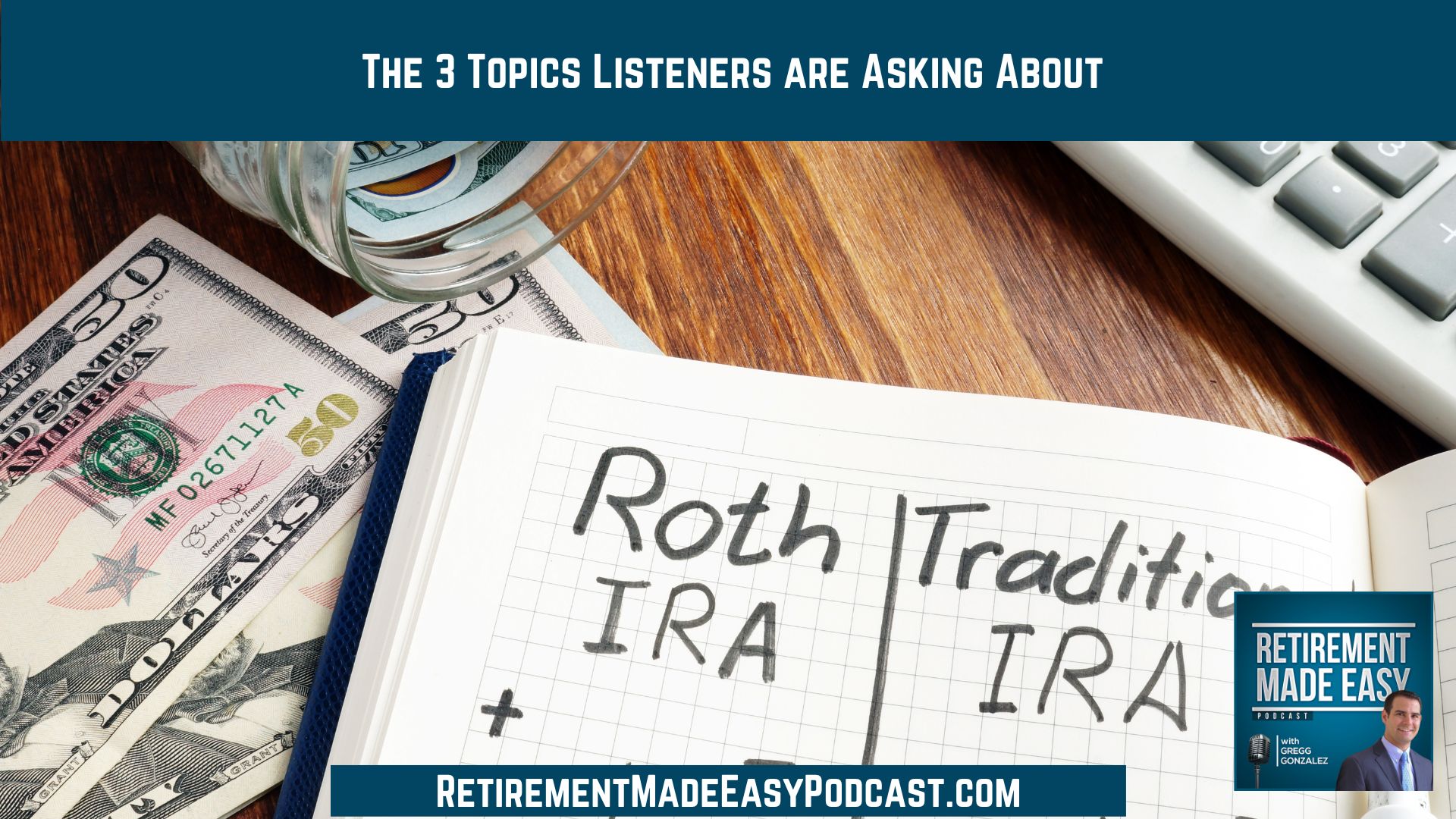
What happens when you sell your primary home? What are the tax implications? What’s the deal with long-term care insurance? Do you need it? What are Roth 401ks and IRAs and why do you need one? I’ve been getting numerous questions about these three topics, so in today’s episode of the Retirement Made Easy podcast I’ll break them down. Don’t miss it!
You will want to hear this episode if you are interested in…
- [4:02] Submit a question at RetirementMadeEasyPodcast.com
- [5:45] Popular Topic #1: What happens when you sell your house
- [10:33] Popular Topic #2: Long-term care insurance
- [17:16] Popular Topic #3: Roth IRAs and 401ks
Popular Topic #1: The tax implications of selling your primary residence
What happens when you sell your home? Will you owe taxes on the gain? Let’s say a hypothetical married couple bought their home for $300,000 20 years ago and it’s worth $600,000 today. That’s a $300,000 gain. Will they realize a $300,000 capital gain on the sale of their home?
According to the IRS, if you sell your primary residence, a couple filing jointly has a $500,000 capital gain exclusion on the sale of that residence. This couple would not have to pay capital gains taxes on the first $500,000 of profit. If you’re single, the exclusion is $250,000.
However, to qualify for the exemption, you have to have lived in the home full-time for two of the last five years. What if you make improvements to the home? Listen to learn a bit more!
Popular Topic #2: Long-term care insurance
Some states (like Washington) require you to buy long-term care insurance through an employer. Most of the questions I’ve received are geared toward the basics of long-term care, so here they are:
- Traditional long-term care insurance: You pay into a policy, similar to homeowners insurance. If nothing happens and you don’t submit a claim, you don’t get your premiums back. Those payments are gone. You’re insuring for a risk that may not come to fruition (i.e. whether or not you need long-term care).
- Hybrid long-term care insurance: This combines a long-term care policy with a life insurance policy. So when you pass away, if you don’t use the long-term care, your family inherits a death benefit. These are becoming more popular.
The more competitors you have in any environment, the more choices there are, and the lower premiums will be. There isn’t a lot of competition right now, so this insurance is costly. So if you’re going to pay for long-term care insurance, we need to account for these premiums in your retirement plan. Listen to hear some positives and negatives of each of these types of policies to decide if it’s right for you.
Popular Topic #3: Roth IRAs and 401ks
I was recently at a conference for financial advisors. The speaker asked us if taxes would be higher in the future. Thousands of advisors raised their hands. The Biden administration wants to raise taxes, yet we add more and more debt. I believe it’s inevitable that taxes will only go up. To combat rising taxes, you could consider a Roth IRA or 401k.
Roth IRAs are the one way you can pay taxes on the money now in a lower tax environment and watch it grow tax-free. And when you make a withdrawal, you will not be taxed. If a loved one inherits your IRA, they won’t have to pay taxes on it. See the theme?
But to contribute to a Roth IRA, you must have earned income or do a Roth conversion. So if you have a traditional IRA, you can take a portion, pay the taxes on it, and move it to a Roth IRA.
When does it make sense to do this? How much should you convert? Why wouldn’t you want to put everything in a Roth IRA? Listen to the whole episode to learn more!
Resources & People Mentioned
- 3 Steps to Retirement Planning
- The Basics of Long-Term Care Insurance
- 3 Types of Accounts You Want to Have to Save for Retirement
Connect With Gregg Gonzalez
- Email at: Gregg@RetireSTL.com
- Podcast: https://RetirementMadeEasyPodcast.com
- Website: https://StLouisFinancialAdvisor.com
- Follow Gregg on LinkedIn
- Follow Gregg on Facebook
- Follow Gregg on YouTube



